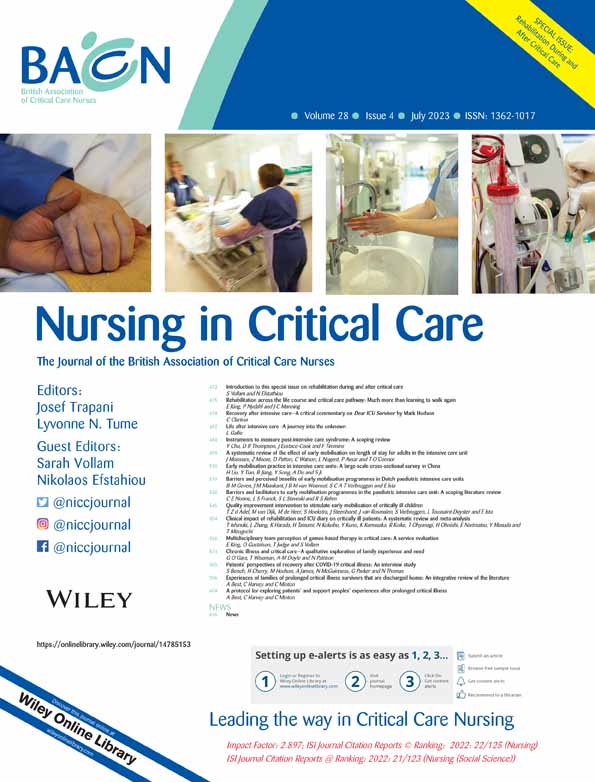Patients' perspectives of recovery after COVID-19 critical illness: An interview study
Abstract
Background
Critical illness is a traumatic experience, often resulting in post-intensive care syndrome, affecting people's physical, psychological, emotional, and social well-being. The early recovery period is associated with increased risk, negatively impacting longer-term outcomes.
Aims
The aims of this study were to understand the recovery and rehabilitation needs of people who survive a COVID-19 critical illness.
Study design
An exploratory descriptive qualitative interview study with 20 survivors of COVID-19 critical illness from two community-based healthcare settings in London, England. Data collection took place September 2020–April 2021, at least 1 month after hospital discharge by telephone or virtual platform. Data were subjected to inductive thematic analysis and mapped deductively to the three core concepts of self-determination theory: autonomy, competence and relatedness.
Results
Three key themes emerged: traumatic experience, human connection and navigating a complex system. Participants described how societal restrictions, fear and communication problems caused by the pandemic added to their trauma and the challenge of recovery. The importance of positive human connections, timely information and support to navigate the system was emphasized.
Conclusions
Whilst findings to some extent mirror those of other qualitative pre-pandemic studies, our findings highlight how the uncertainty and instability caused by the pandemic add to the challenge of recovery affecting all core concepts of self-determination (autonomy, competence, relatedness).
Relevance to clinical practice
Understanding survivors' perspectives of rehabilitation needs following COVID-19 critical illness is vital to delivery of safe, high-quality care. To optimize chances of effective recovery, survivors desire a specialist, co-ordinated and personalized recovery pathway, which reflects humanized care. This should be considered when planning future service provisions.
CONFLICT OF INTEREST
None of the authors have any conflicts of interest to declare.




